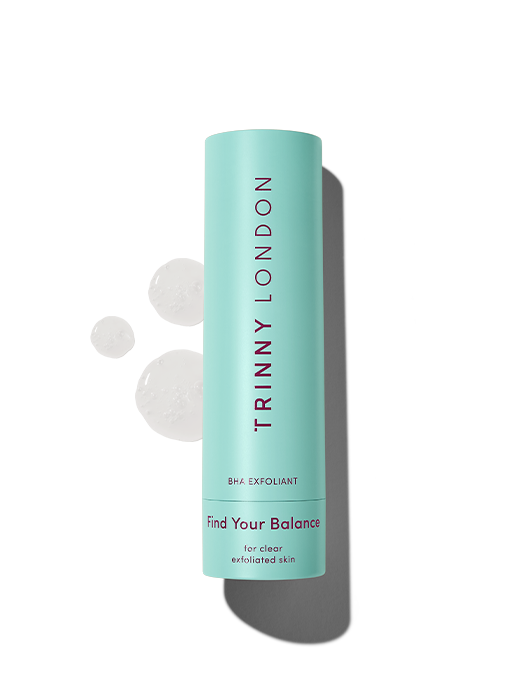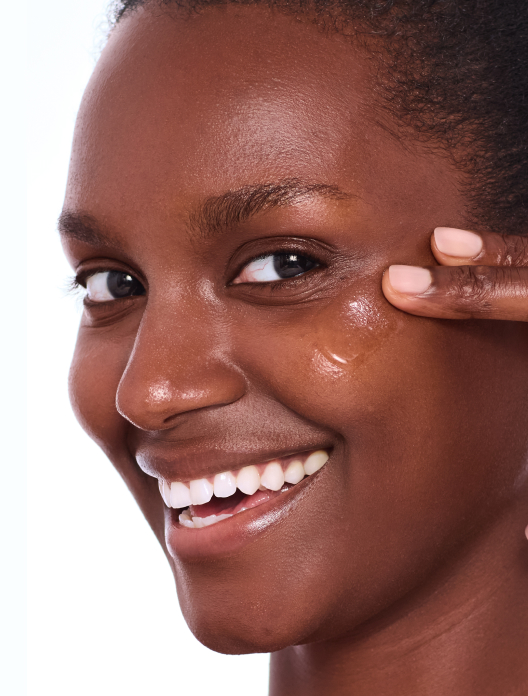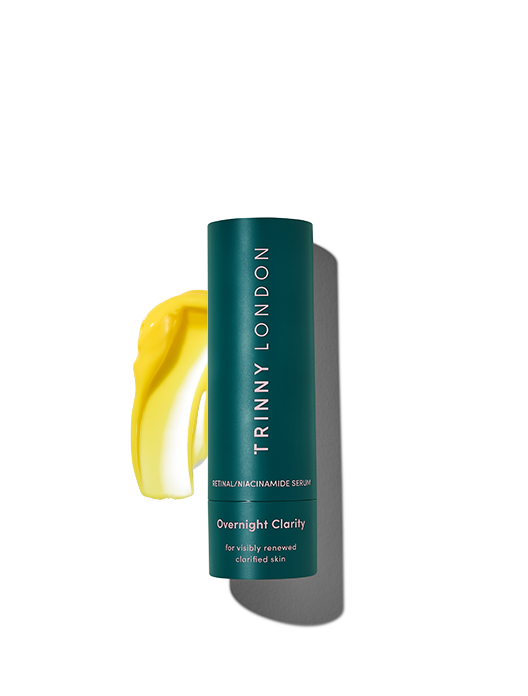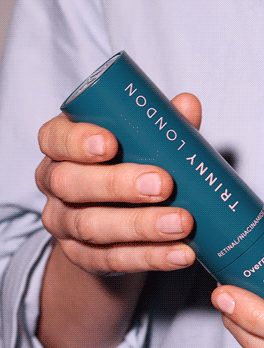

Find Your Balance
Clarifying complex to tackle blemishes
Choose 3 free samples with every order

When our skin is lashing out, there’s an understanding tendency to retaliate with force. With blemishes popping up quicker than we can clear them (think a confidence-denting game of whac-a-mole) many of us reach for harsh, stripping products in order to ward them off. Instead, what skin needs is a softly-softly, hand-holding approach to bring it back from the brink and into clear, comfortable territory. And that means no picking either.
You know that feeling when your to-do list is fit to bursting and someone asks you for a favour? It’s overwhelming and easy to become snappy and irritable. Our skin is exactly the same. Our skincare products serve different purposes and if we pile on too many actives, like liquid exfoliants and retinoid serums, at once, the skin can become overworked and stressed. This doesn’t take long to show on the surface, and can be reflected in soreness and redness.
When battling breakouts and skin is stressed, give your skin some downtime by stripping your routine back to cleansing, moisturising and SPF. Good cleansing alone can go a long way towards improving blemishes, especially if your previous routine involved sleeping in your makeup or a quick swipe of a makeup wipe. Once the irritation has subsided, you can slowly start to re-incorporate blemish-busting ingredients like beta-hydroxy acids and retinoids.
Despite what you have been told, acne is not caused by dirt. Instead, breakouts are triggered by hormones and form when oil and dead skin cells block our pores. For this reason, desperately over-cleansing the skin won’t get rid of blemishes, but it can rob it of all the lovely oil and water it needs to function at its best. This disrupts the skin’s ability to act as a barrier, with moisture escaping through the cracks and nasties able to breakthrough. Skin appears dehydrated, tight and starts to flake like pastry.
It’s a vicious cycle, as when skin is extremely thirsty we want to comfort it by piling on nourishing products. But, if your comfort blanket of choice is heavy oils or thick creams they can also drive breakouts by clogging pores. So, instead of avoiding adding moisture to your skin altogether, trade stripping cleansers for something more nourishing and layer much-needed hydration with a more palatable combination of lightweight serums and moisturisers.
Breakouts are stubborn and prodding, picking or popping spots by way of an eviction notice won’t necessarily speed up the amount of time they’re taking up residency on your skin. What it will do is increase the risk of spot scars forming, especially if you’re taking it so far as to draw blood.
As a general rule, the more inflammation surrounding a blemish, the more likely you are to scar. It is a misconception that it’s only acute acne, with angry, throbbing cysts, that leaves behind scars. In fact, it’s just as common in smaller spots like whiteheads that have been picked. Scars can present as raised (higher than the skin) or depressed (dipped into the skin) and also in the form of hyperpigmentation.
Shop the article


Clarifying complex to tackle blemishes


Retinal/niacinamide serum for visibly smooth, even skin, suitable for all skin types